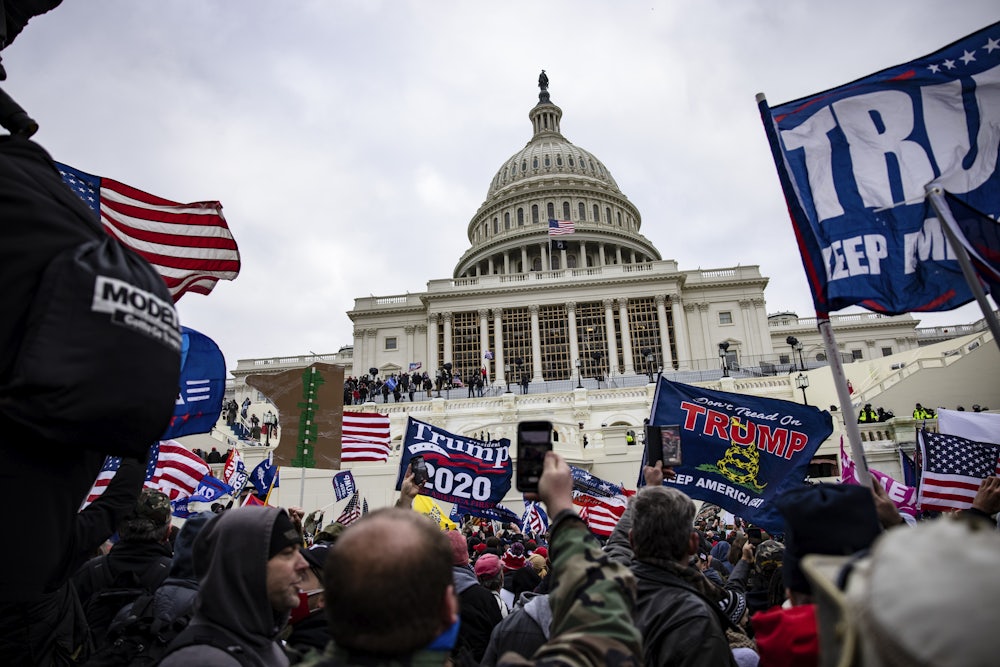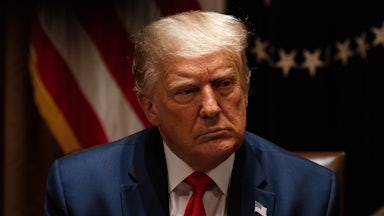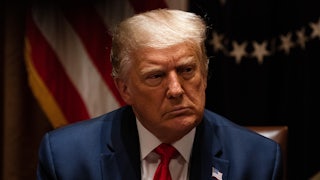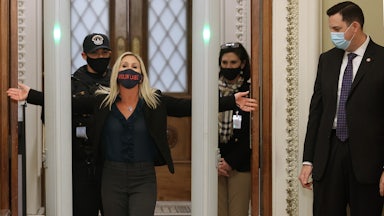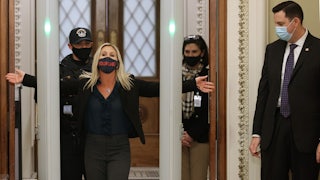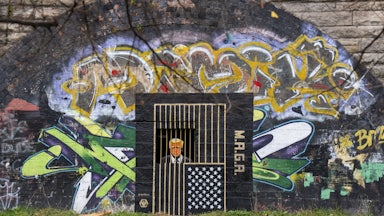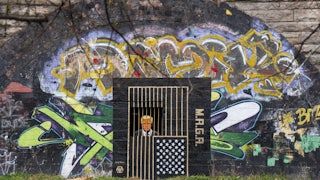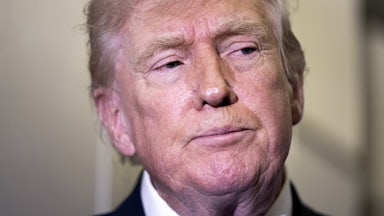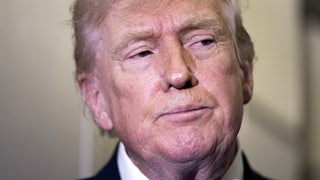Donald Trump’s second impeachment trial begins on Tuesday, and both of the legal teams have now filed their final briefs before the main event. Managers from the House of Representatives, who will serve as de facto prosecutors, submitted their five-page response to Trump’s answers to the impeachment charges on Monday afternoon. The Trump team’s answers only offered a glimpse into how it’s planning to defend its client; as a consequence, the House’s reply was also somewhat short.
Terse though it may be, the House managers’ brief rejected each of the procedural claims raised by Trump’s lawyers, one after the other. They argued that the Senate can constitutionally try a former president, that the First Amendment does not immunize Trump’s actions, that the House properly charged him, and more. They also framed the stakes in strong terms: “His incitement of insurrection against the United States government—which disrupted the peaceful transfer of power—is the most grievous constitutional crime ever committed by a president,” the managers concluded. “There must be no doubt that such conduct is categorically unacceptable.”
At the same time, Trump’s lawyers filed their own 78-page trial brief. It lays out the former president’s defense at great length, if not in great depth. A significant portion of the brief is devoted to partisan attacks against House Democrats. “The intellectual dishonesty and factual vacuity put forth by the House Managers in their trial memorandum only serve to further punctuate the point that this impeachment proceeding was never about seeking justice,” Trump’s lawyers wrote. But the most intriguing aspect of the briefs isn’t its false complaints about dishonesty and vacuity, but rather how Trump’s defenders tellingly indulge in them themselves.
As I’ve previously noted, the president’s lawyers are not particularly eager to discuss what happened on January 6. Their brief goes so far as to chastise the House managers for daring to bring it up before the Senate in any significant detail. “On January 6, 2021, rioters entered the Capitol building and wrought unprecedented havoc, mayhem, and death,” Trump’s lawyers wrote. “In a brazen attempt to further glorify violence, the House Managers took several pages of their Memorandum to restate over 50 sensationalized media reports detailing the horrific incidents and shocking violence of those hours.”
It takes no small amount of chutzpah to argue that the lawmakers endangered by Trump’s actions are now trying to “further glorify” them by describing them at his trial. Ironically, a chunk of the Trump brief also argues that the House conducted an investigation that was too hasty to be constitutional. There is no precedent to support this argument: Andrew Johnson, for example, was impeached by the House just three days after he violated the Tenure of Office Act. But it shows how Trump’s lawyers are throwing whatever arguments they can at the Senate in the hope that some of them will stick, even if they contradict themselves.
But as much as Trump’s lawyers strain to avoid a lengthy discussion of the events of January 6, they also strive mightily to pretend that American history began that morning. The House managers’ brief went into significant detail about Trump’s months-long refusal to accept the election results, as well as his multipronged effort to overthrow and delegitimize them. Their narrative concludes with Trump summoning his supporters to Washington, telling them that the country is at stake, urging them to “fight back,” and demanding that they march on Capitol Hill.
Trump’s lawyers drew heavily upon Trump’s perfunctory call for the protests to be “peaceful” to prove his innocence. But more broadly, they also took issue with the House managers for digging too deeply into what their client did before January 6. “Despite going to great lengths to include irrelevant information regarding Mr. Trump’s comments dating back to August 2020 and various postings on social media, the House Managers are silent on one very chilling fact,” they argued. “The Federal Bureau of Investigation has confirmed that the breach at the Capitol was planned several days in advance of the rally, and therefore had nothing to do with the President’s speech on January 6th at the Ellipse.”
This only makes sense if you don’t think about it for more than five seconds. Trump didn’t happen to wander outside on January 6 and urge a random group of tourists to march on Capitol Hill. He and his campaign planned and advertised some sort of for-all-the-marbles confrontation on the day Congress was set to certify the election results for many weeks in advance. “Statistically impossible to have lost the 2020 Election,” Trump wrote on Twitter on December 19. “Big protest in D.C. on January 6th. Be there, will be wild!” His supporters listened and showed up in droves—as did those who had darker plans. And as two New York Times reporters demonstrated with cell phone data, a great many of the Ellipse attendees made their way to—and even inside—the Capitol.
But the flaws in reasoning go even further than that. Suppose that someone broke into your house and ripped up your near-mint copy of Action Comics #1. You’re upset not only because it contained the first appearance of Superman, but also because it would fetch more than $3.2 million on the market. You suspect that I’m responsible for what happened—maybe I broke in myself, or maybe I hired someone to do it for me. How would you prove such a case to the authorities? Would you tell those authorities about how you outbid me for the rare 1939 comic book by more than a million dollars when it was last auctioned off? That doesn’t prove much by itself, of course.
But what if I had spent the last three months complaining that you had actually stolen the comic book from me through some sort of fictitious scheme with the auction house? Maybe I repeatedly warned other Superman fans that the treasured artifact didn’t belong to you, that it wasn’t safe in your hands, that something had to be done. Maybe I was in town on the day it was stolen from your house, speaking at a nearby park, telling an assortment of fellow nerds who had gathered close to where you lived. Suppose that I denounced your roommate for not giving me the comic book himself and declared that we should march there together. Maybe things then got a little out of hand.
All of what I just described—my actions and behavior, my mood and state of mind, my rhetoric, and my calls to action—would matter when accusing me of wrongdoing. Sure, I never explicitly said that anyone should hurt you or break into your home. Nor did I tell anyone to tear apart a priceless piece of superhero history. But I certainly bear moral responsibility for what happened. And while your account might not put me in prison, it should hopefully be more than enough to ban me from the San Diego Comic-Con for life.
Trump’s lawyers are still mainly interested in sinking the case against him on procedural grounds. If they fight the House managers on the merits, after all, they’ll only remind every senator in the chamber about what the president put them through. But they can’t avoid January 6 entirely—it happened on national television and in front of the Senate itself. They need an alternative interpretation of events, one that focuses solely on what Trump did that morning instead of what he did since election night in November. Telling the full story still might not be enough for the House managers to persuade this Senate to convict Trump. But it’s the closest thing they’ve got to kryptonite.
